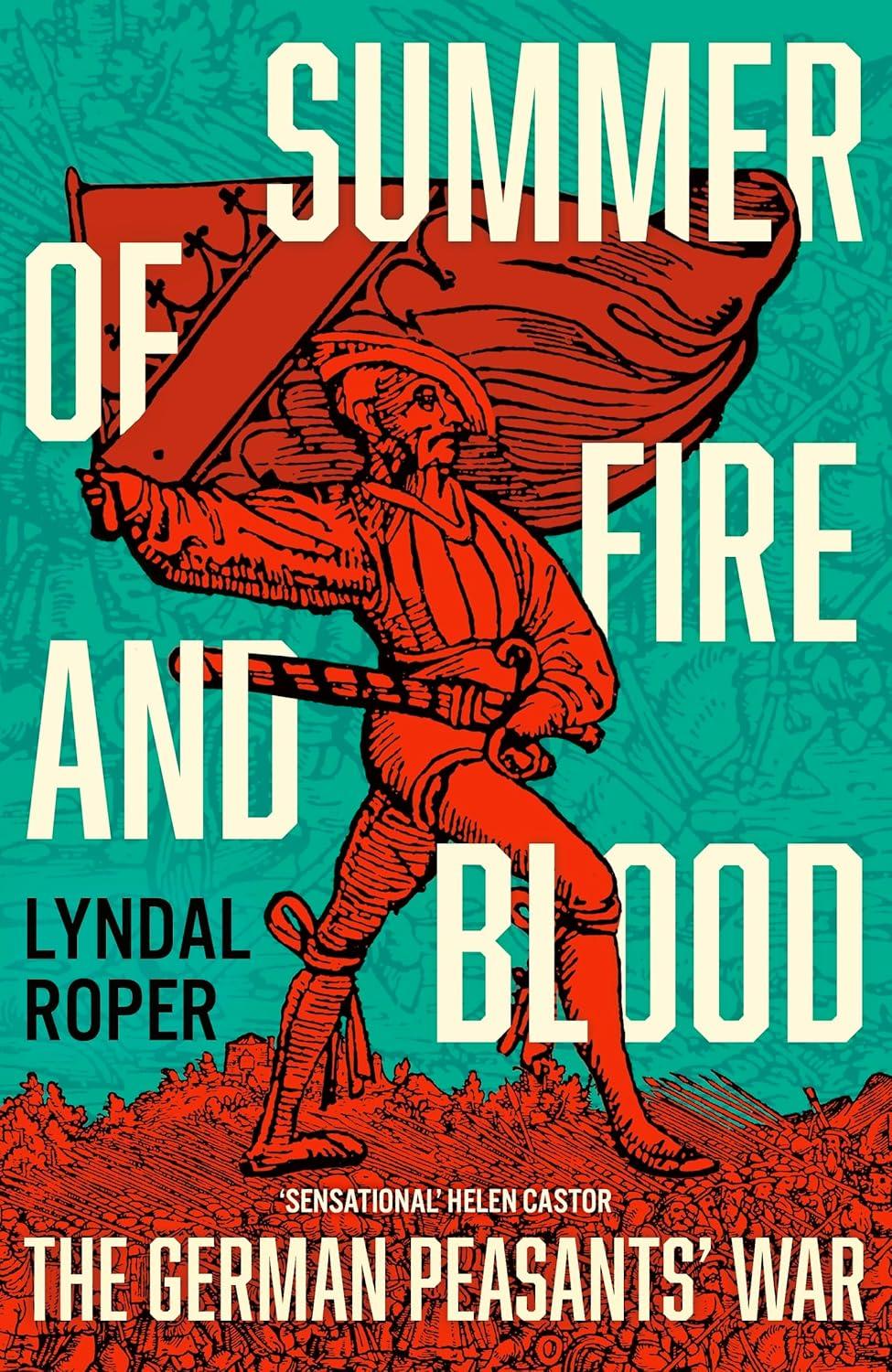When freedom seemed possible

 Basic Books
Basic BooksLyndal Roper | Summer of Fire and Blood: The German Peasants‘ War | Basic Books | 544 pages | 30 GBP
The snails were to blame. When the Landgravine of Lupfen in Stühlingen, Baden, ordered her serfs to collect the shells of these slimy creatures during harvest time, the farmers refused. They had better things to do than collect snail shells simply for the ladies of the court to wind their yarn on. In June 1524, on the day of the summer solstice, the peasants rose up against their rulers. Like-minded people from the surrounding communities soon joined in. By autumn, they had formed an army with its own flag, a loosely organised military unit of peasants, craftsmen and other insurgents. The Peasants' War had begun. For almost an entire year - autumn, winter, spring and summer - the dream of a more amicable and just world would dominate events in the heart of Europe.
500 years after the bloody suppression of the uprising, Australian historian Lyndal Roper, who teaches at Oxford, has published a detailed work to mark the anniversary, "For Freedom", in which she painstakingly delves into the world in which the peasants lived and moved. Roper has only limited faith in the surviving written sources from this period. The peasant culture of the time was mainly characterised by oral tradition, and many peasants were illiterate. Whatever written word was passed down had generally been constructed from the perspective of the nobility, the clergy or, in the best case, by supporters of the Reformation from the educated bourgeousie. In order to avoid this "source trap", Roper has concentrated primarily on recounting the deeds of the insurgents. She reconstructs the experiences that they would have had with great knowledge and detail. Her method goes so far as to retrace the routes of the various groups on foot and by bicycle in order to understand the pace, the landscape, the weather and the effect of the seasons.
The uprising, which ultimately cost the lives of between 70,000 and 100,000 peasants, cannot be explained solely by the economic climate of the time, says Roper. The market had in fact opened up to peasants in the preceding years: "It was an uprising against the entire system of rule that was 'against Christ', against servitude, serfdom and compulsory levies." For the rebels, the Reformation was not a pretext; it had a direct, socially radical impact and aimed to change society.
In 1520, Luther's treatise On the Freedom of a Christian was published. The German translation of the text spread extremely rapidly - mainly thanks to a new, ground-breaking technology: movable type in print production. By 1525 alone, at least 19 further editions and printings of the explosive text are known of. The basic theological statement that the individual is only accountable to God manifests itself for the peasants in their demand that communion wine be served to lay people as well. After all, Christ had bought man's freedom with his blood, as confirmed by the Bible.
Although Luther quickly distanced himself from the peasants and their goals, the idea of equality and brotherhood had a tremendous impact for the rebels. The idea of freedom swept like a tsunami from an abstract theological world to one of concrete experience. And with it came the liberating realisation that the power of the nobility and clergy was not God-given.
Equipped with this spiritual stimulant, other peasant groups soon rose up, coming to their local rulers with many individual grievances and demands. The Memmingen Twelve Articles of March 1525 can be read as a substratum of what was on the peasants' minds. The first article, for example, demands "that the entire community may elect and determine its own pastor". For the Reformation, this was an important key to the country's pulpits. And thirdly, it is written, "it has hitherto been the custom for the authorities to regard us as their serfs, which is pitiful in view of the fact that Christ has redeemed and ransomed us with the shedding of all his precious blood, the Shepherd as well as the Most High, no one excepted. Therefore it follows from Scripture that we are free and want to be free."
This text, in all its twelve articles, formulates a revolutionary social vision for its time, fed by radical Reformation ideas. It became the manifesto of a mass movement that agreed to recognise its content without all participants necessarily knowing it. The Twelve Articles also spread very quickly thanks to the new printing technology. They are a useful reference, and crystallize many of the attitudes and convictions of the insurgents.
For three months in the spring of 1525, the peasants controlled an area that encompassed large parts of modern-day Germany. They lost because they lacked the military training and organisational structure and were inferior to their mounted opponents in terms of combat and weaponry. The vision of a new society died on the battlefields of Wurzach, Scherweiler, Leipheim, Böblingen, Königshofen, Pfeddersheim, Frankenhausen and the many other sites of the uprising. Serfdom remained the status quo, and subjects had to continue paying the tithe.
On her journey through time to the peasants of 1524/25, Lyndal Roper shows how the vision of the rebels developed from a theology of creation in which relationships between people were based on honesty, not greed and avarice. "People were angry that landlords were claiming ownership of natural resources, water, common land, forests and woodlands, even though these belonged to God's creation and therefore to all people," she writes. And thus touches on questions that are just as relevant today as they were then: Who owns the natural resources? Who controls the energy sources? How do we deal sustainably with the limited resource of land?



